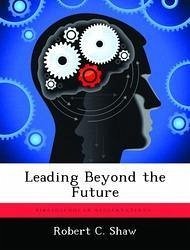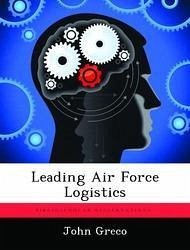Nicht lieferbar

Leading Beyond the Future
Versandkostenfrei!
Nicht lieferbar
This study investigates senior leadership in the eras of warfare over time and those senior leader traits, skills, and characteristics, that have endured, changed, or will no longer apply in the ultra-modern era of warfare. The study predicts the warfare environment and challenges for senior leaders in the next era of warfare. The study first defines and reviews each of the eras of warfare and compares the characteristics, traits and skills required of senior leaders in each of the eras of warfare from pre-modern, modern, post-modern, and finally it predicts the next era of warfare, the ultra-...
This study investigates senior leadership in the eras of warfare over time and those senior leader traits, skills, and characteristics, that have endured, changed, or will no longer apply in the ultra-modern era of warfare. The study predicts the warfare environment and challenges for senior leaders in the next era of warfare. The study first defines and reviews each of the eras of warfare and compares the characteristics, traits and skills required of senior leaders in each of the eras of warfare from pre-modern, modern, post-modern, and finally it predicts the next era of warfare, the ultra-modern era. A review of particular senior leaders in each of the eras shows how different each era was and the challenges that faced these senior leaders. The study shows that the Army must look at many different aspects as it transforms to the Future Force, not just advances in technology. In each era of warfare, the senior leaders are the ones who have led armies to victory or defeat. Technology alone does not win the wars. U.S. Army Transformation must look at senior leadership traits, characteristics and skills required to lead our army into the future and win. Senior leaders of the future must continue to consider those traits, skills and characteristics of leadership that are indicative of other eras and look to see which ones apply, which ones do not, and develop new ones for the future. Such senior leader skills as communicating to subordinates and leading by example will not be the same in the ultra-modern era of warfare. Senior leaders will have to learn how to leverage new technologies before becoming a senior leader, because today 's junior leaders are tomorrow 's senior leaders. This study concludes that by reviewing historic examples of senior leaders in the context of their specific era of warfare, one can predict what senior leaders need in terms of skills and traits for the future. Some of these skills or traits are no longer valid because the characteristics













